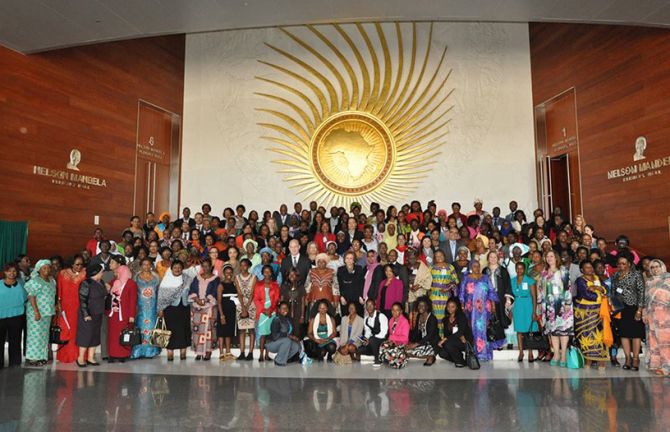

Update
African leaders reaffirm commitment to the AIDS response and women’s empowerment
11 February 2015
11 February 2015 11 February 2015The 24th Summit of the African Union and related events reaffirmed that Africa is committed and will remain committed to women’s empowerment and to ending the AIDS epidemic by 2030. The Summit took place in Addis Ababa, Ethiopia, from 23 to 31 January 2015 under 2015 annual African Union theme of “Women empowerment and development towards Africa’s Agenda 2063”.
The importance of ending AIDS was particularly articulated during the gender pre-summit meeting, at which the participants noted that member states should ensure that ending the AIDS epidemic by 2030 is part of Agenda 2063 and that it has an inclusive human rights approach that leaves no one behind, including children, adolescents, women of child-bearing age and women and girls in conflict and post-conflict settings.
The participants at the pre-summit meeting also noted that member states should ensure that the sexual and reproductive health and rights of African women are implemented without renegotiation of their content.
The Summit adopted Agenda 2063, the African Union vision of the next 50 years, and endorsed the formation of the African Group of Negotiators on the Post-2015 Development Agenda, the single negotiating body acting on behalf of the continent.
Quotes
“We should spare no effort to accelerate progress towards achieving the Millennium Development Goals, or to get as close as possible to doing so in the remaining time.”
“Affordable, quality health care must be a central feature of Africa’s development agenda. The remarkable success of efforts to combat AIDS across the continent show what we can achieve by acting together.”
“We must invest in our people—their health and education, access to water and sanitation—and build resilience and public health systems in order to defeat diseases like Ebola, as well as malaria and HIV.”
“Ending AIDS is achievable if we reduce gender inequalities, including violence. Gender equality requires social transformation, which starts with political leadership and dedicated action.”



